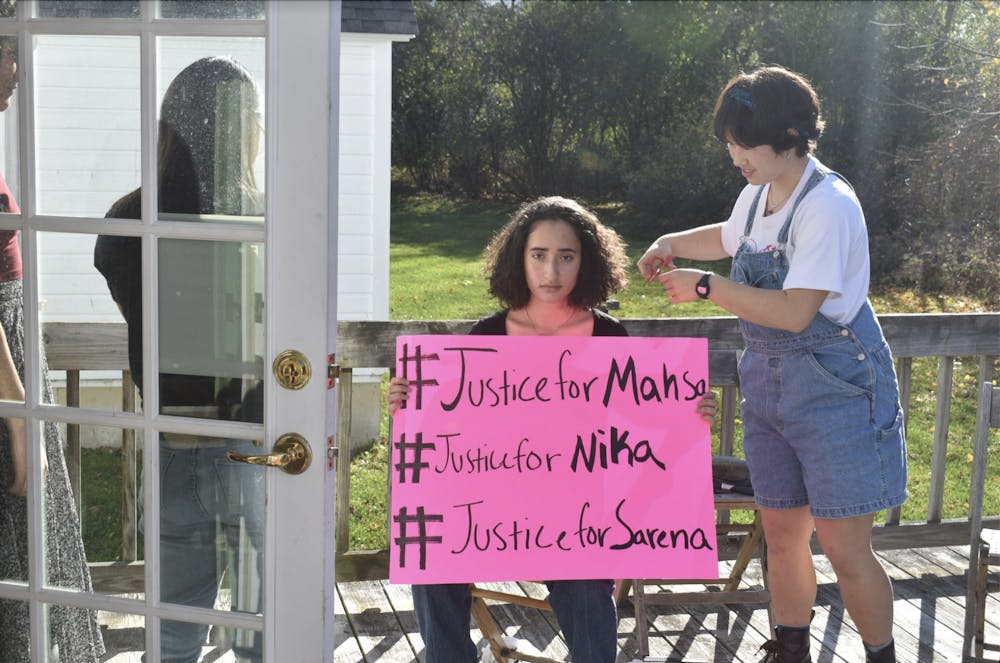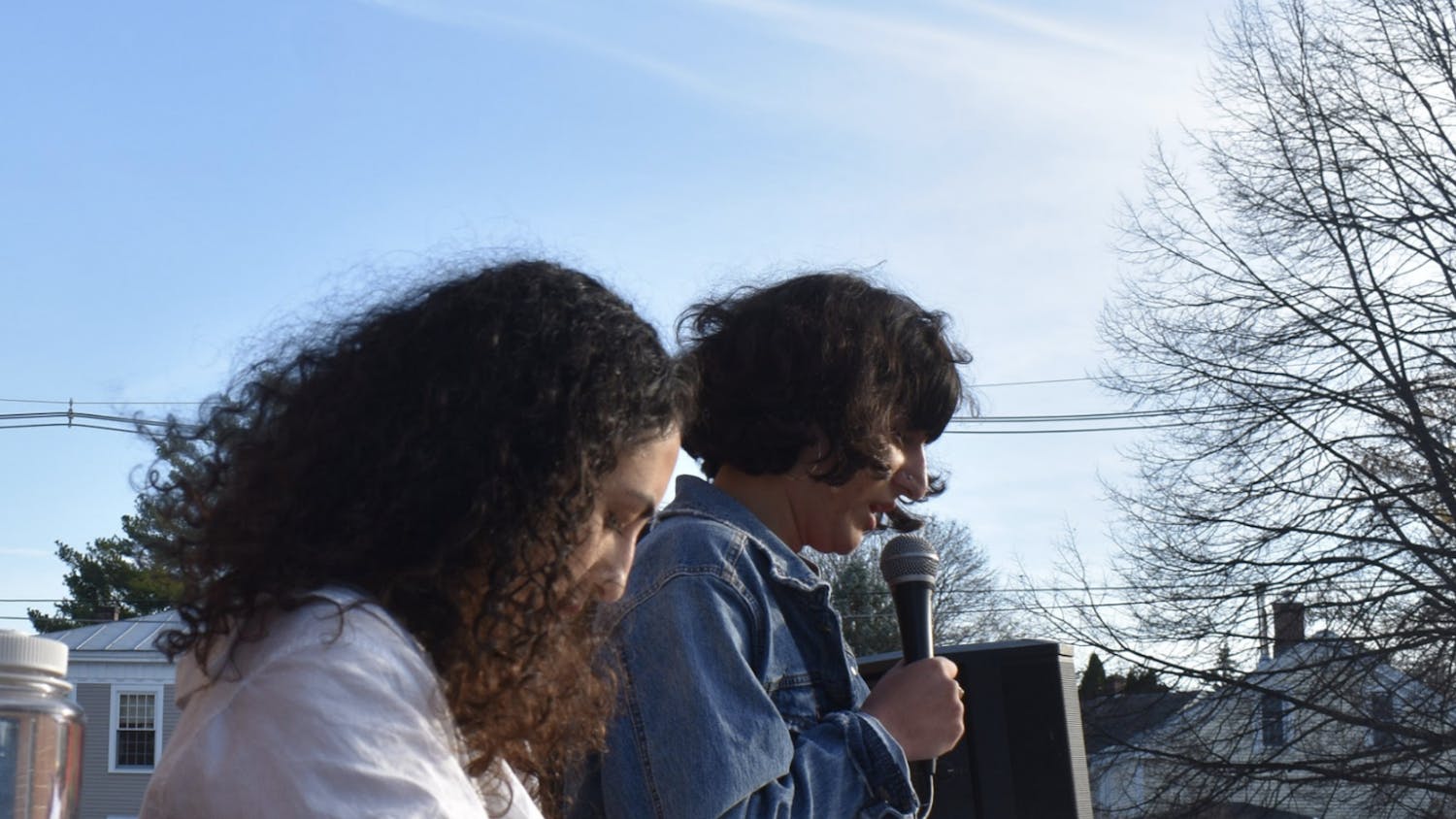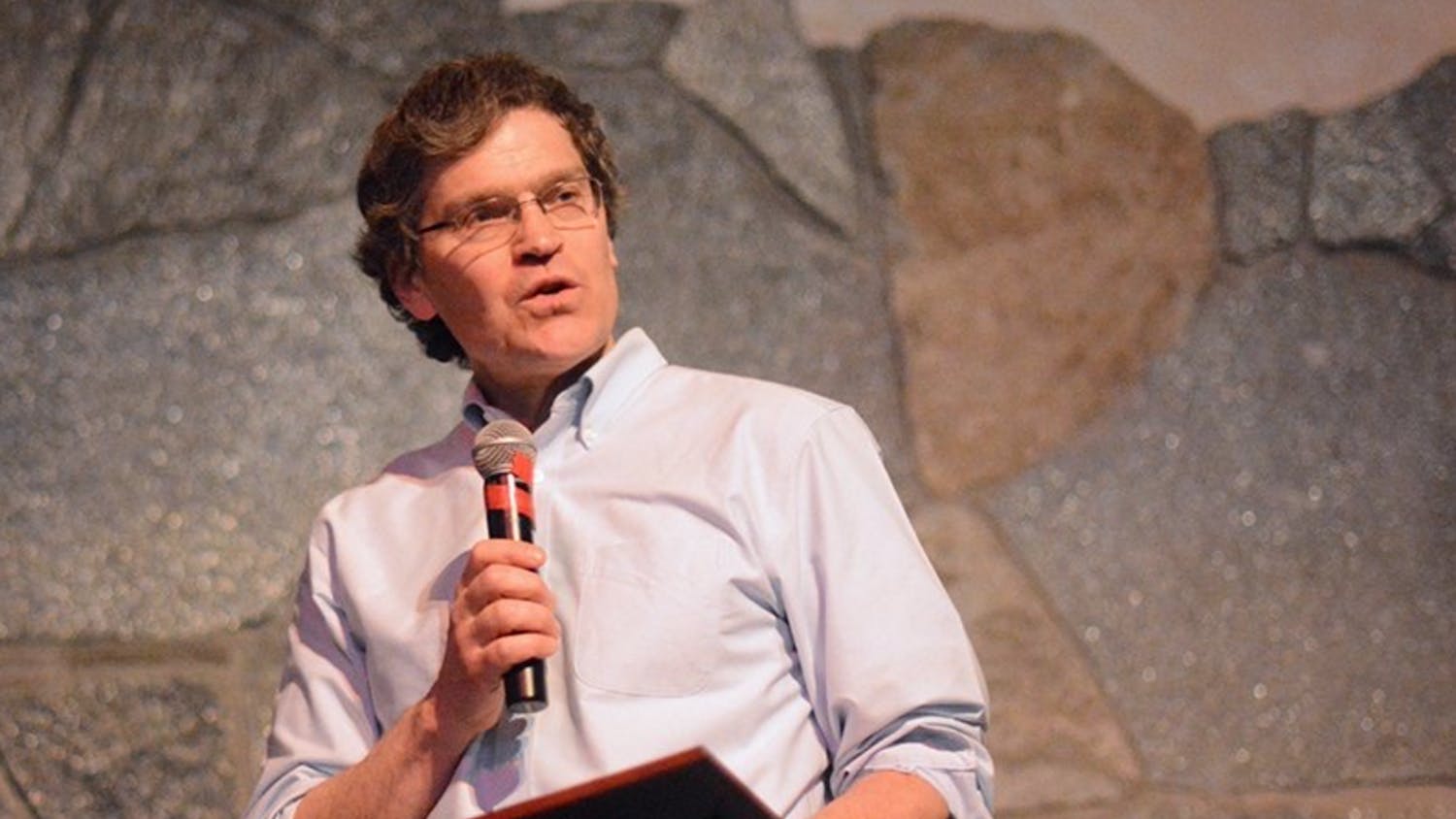Approximately 35 Middlebury College and Middlebury Union High School students and community members gathered in the afternoon of Nov. 6 to rally in support and solidarity of women in Iran. The event began with a haircutting session outside of Chellis House, followed by a march from the Chapel to Twilight Hall and a “die-in,” a form of protest in which participants simulate being dead.
The protest was in response to the deaths of Iranian women — Mahsa Jina Amini, Nika Shakarami and Sarena Esmailzadeh. Mahsa Amini died after she was detained by the Iranian Guidance Patrol — sometimes referred to as the morality police — for allegedly wearing her headscarf too loosely. Nika Shakarami and Sarena Esmailzadeh, who participated in subsequent protests, were allegedly tortured and killed by Iranian security forces, which the security forces repeatedly denied.
Sophia Afsar-Keshmiri ’24 and Mei Dwyer-Frattalone ’24, co-organizers of the haircutting event and the protest, explained the motivations behind the demonstration.
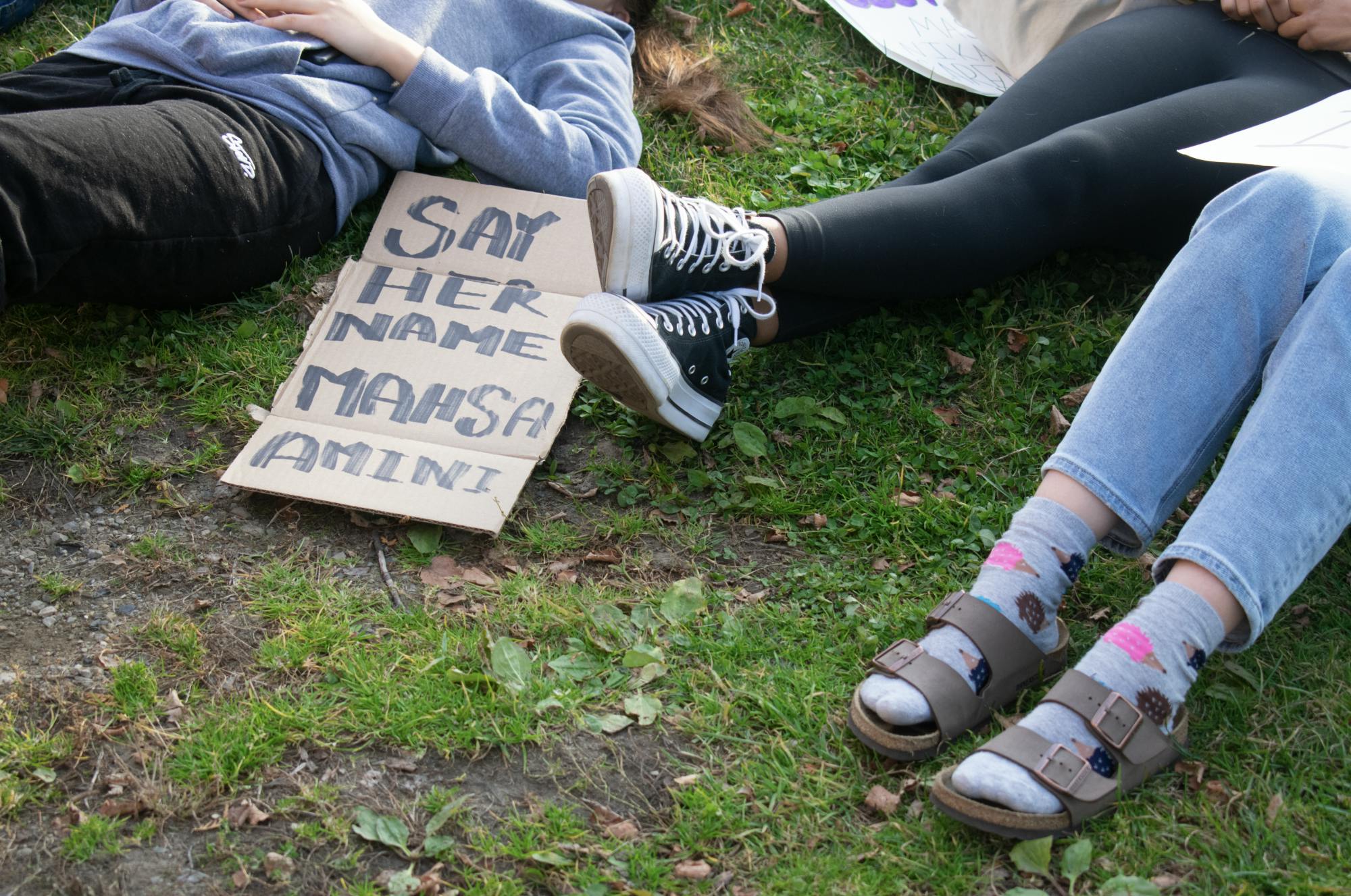
Students participated in a "die-in," a form of protest where individuals simulate being dead.
“The intentions of this rally are to both echo and amplify the voices of Iranian and Kurdish women fighting for their basic human rights in Iran right now,” Afsar-Keshmiri and Dwyer-Frattalone wrote in an email to The Campus. “Making sure their voices and stories are heard is the most tangible thing we can do to help right now.”
Haircutting as a form of protest and a way to mourn and grieve was derived from the female characters in the Persian Epic poem Shahnameh, an important text in Persian/Iranian literature, according to Afsar-Keshmiri.
“It is being employed by the Iranian and Kurdish women in Iran right now, and so we decided that we should also offer this to students attending the march as a way to show solidarity with these brave women,” she said.
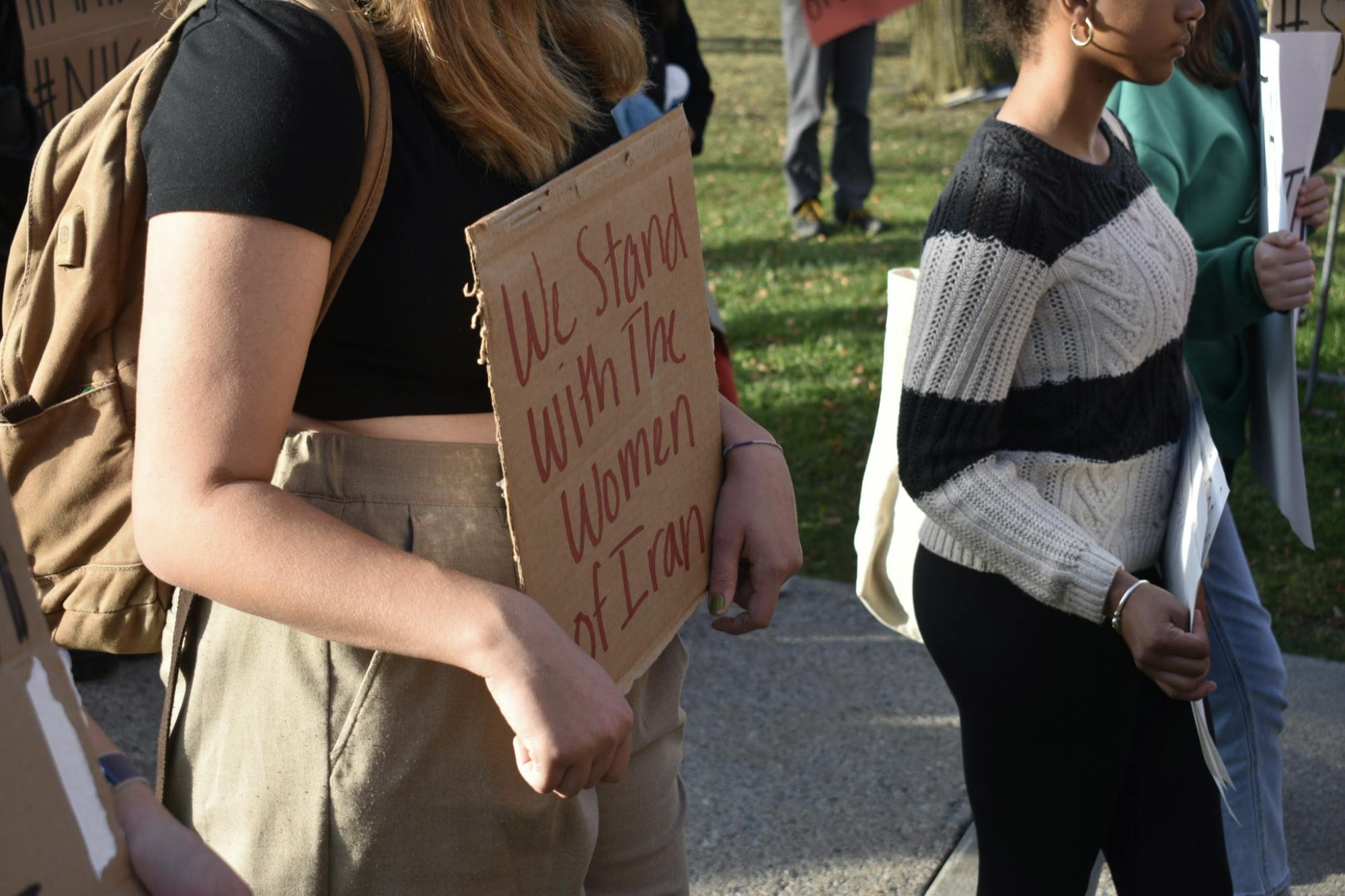
The Student Coalition for Human Rights club at the Middlebury Union High School was also involved, with some high schoolers attending both the haircutting and the rally.
High school senior Narges Anzali also emphasized the importance of hair as a form of protest.
“Hair is a personal thing, which is part of why the women in Iran are fighting so hard to have the right to choose whether or not to wear a hijab,” she said.
Anzali’s relatives still live in Iran, and she often finds herself feeling guilty that she is unable to do more.
“I felt a lot of relief at cutting my hair. It was something that I was very sure that I should do. It didn't make the cutting itself any less difficult. I'm still 17 and worried about how my hair looks,” Anzali said. “But when I think of everything that my relatives living in Iran have had to deal with their entire lives, my own concerns seem kind of insignificant. I was grateful that I could do something tangible to express my support for the people of Iran.”
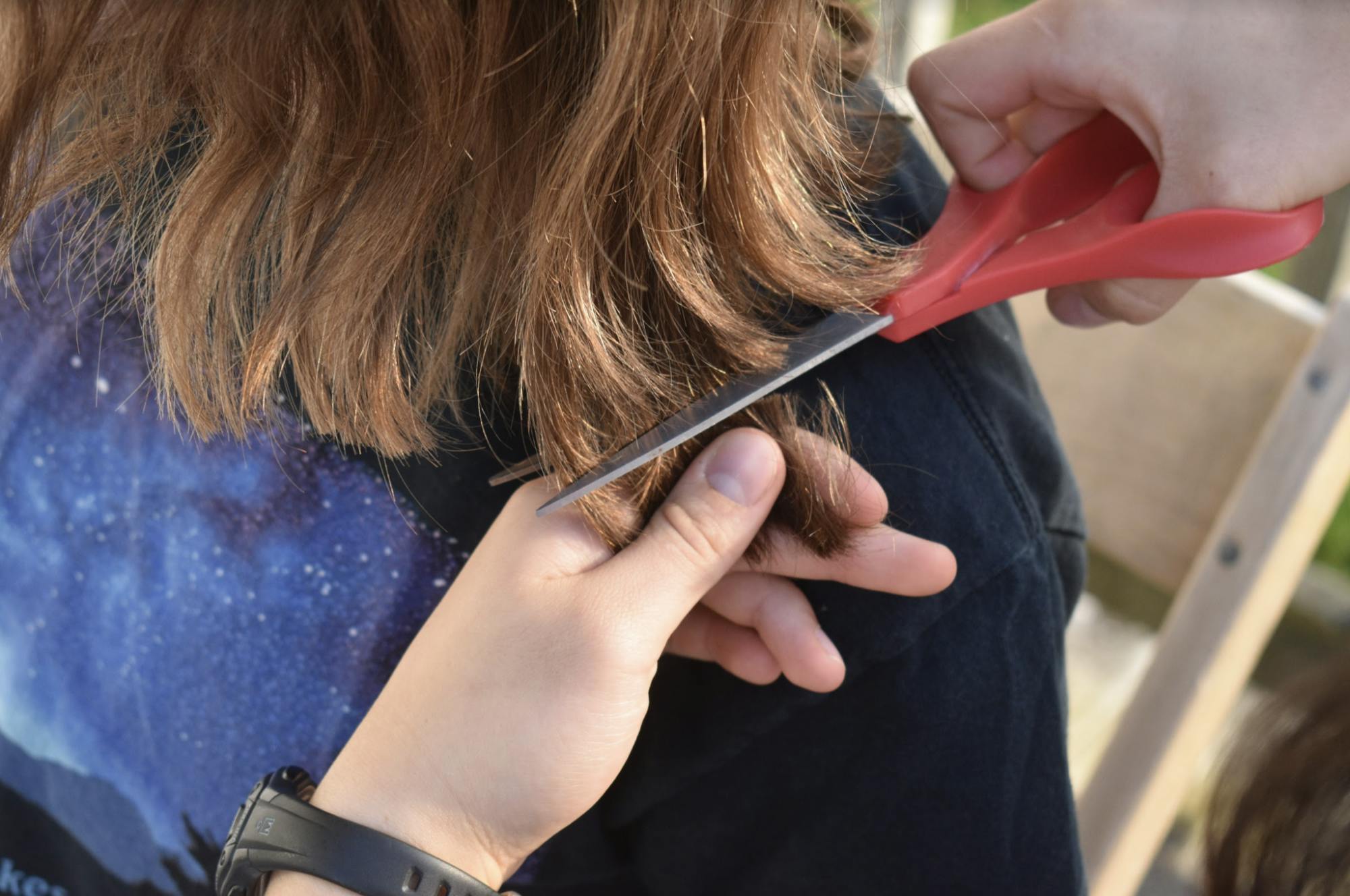
Ari Graham-Gurland, also a senior from MUHS, participated in the haircutting protest.
“I wanted to support [Anzali] and all Iranian women fighting for their freedom and was grateful for this opportunity to march in solidarity with them,” Graham-Gurland said. “I felt like cutting some of my hair was the least I could do to support my friend and the fight for women's rights. Cutting my own hair was a strange experience, but I also felt empowered that I was taking part in a movement that is echoing around the world.”
Graham-Gurland connected the protest with sentiments expressed in Martin Luther King Jr.’s 1963 “Letter from a Birmingham Jail.”
“We cannot be free until our sisters and brothers across the world too can live in peace. Taking part in the protest yesterday was a small action to support the immense movement for women's freedom in Iran,” Graham-Gurland said.
Fayezeh Haji Hassan ’14, who was leading protests with similar themes in Pittsburgh, Pa., Zoomed in to support the haircutting event and to have a conversation with the participants.
“This is the feminist revolution of our time, and it comes from the Middle East, which nobody even thought about in the U.S.,” Hassan said. “We don’t want and don’t need to be saved. We just need people to hear our voices… What we are doing is we are fighting the very tool that they are oppressing us with, and that tool is Islam. It doesn’t mean Islam is bad, but they are using that tool to oppress us. So when we talk about these issues, we are not talking about Muslims or whatever people’s religious beliefs are, but we are talking about the set of ideas the government is trying to push on us in the name of religion.”
The haircutting event was followed by a rally at the Chapel and a march down to Twilight Hall to perform a die-in. Following the lead of Iman Behbehani ’23, the protesters raised signs with the names of the deceased, chanting the slogan “woman, life, freedom,” which has become a rallying cry for protesters in Iran. At Twilight, Afsar-Keshmiri, Behbehani and Dwyer-Frattalone each delivered a speech.
“This will not last forever. The dehumanization of women in Iran has lasted a long time and will end,” Behbehani said in her speech. “We will win. Even if this fight fails, there will be another. And another. And again and again, until we are victorious. We fight here for them. Trust that they can feel the power we share here today.”
She called for people to recognize their power in protest.
“Every time you stand up for yourself or others you stand up for people of the same identity. So stand up. Any identity you hold, queer, female, gender non-conforming, BIPOC. It is the same power you need to uphold,” Behbahani said.
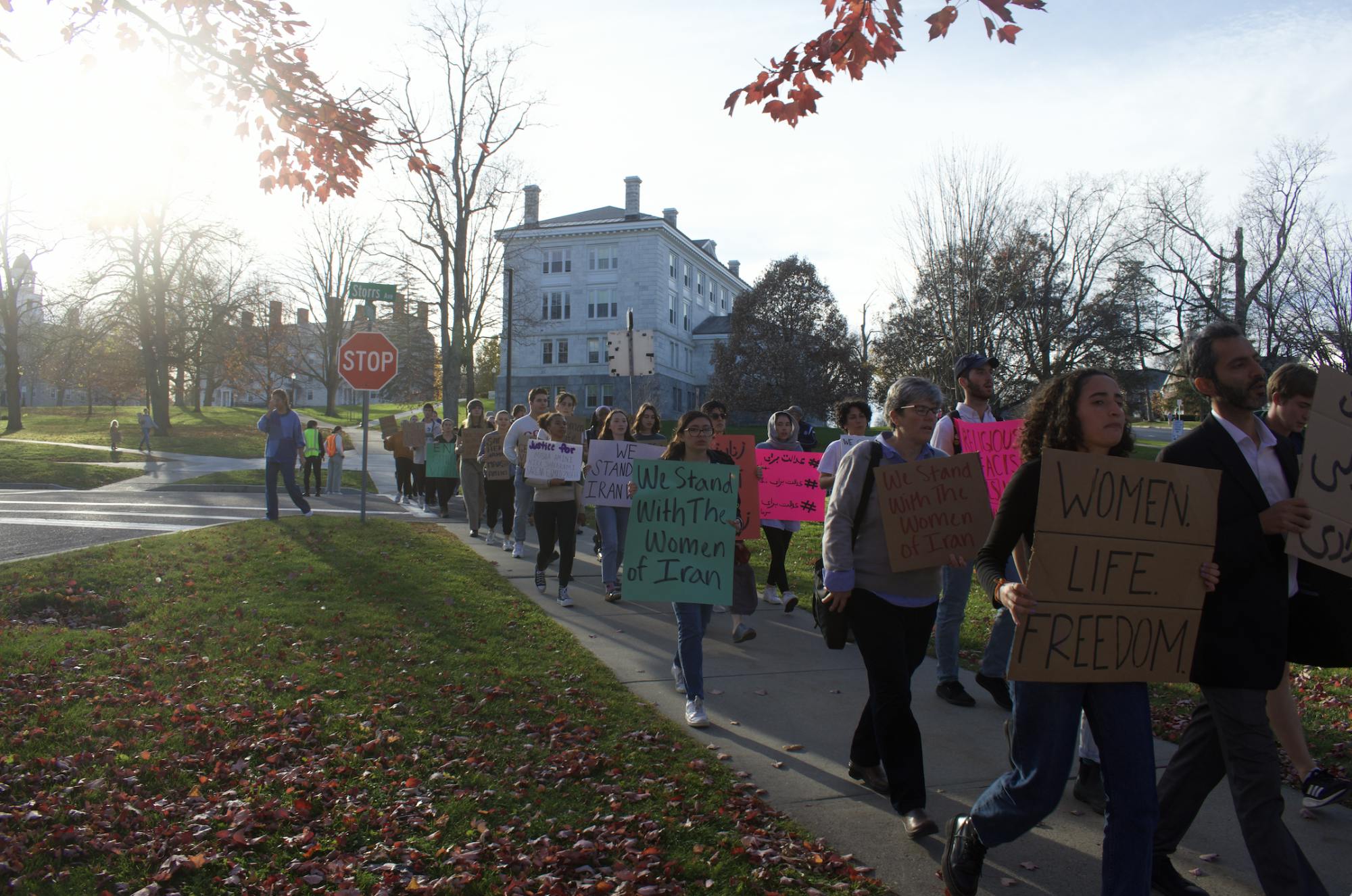
After the speeches, all protesters performed the 10-minute die-in.
“The die-in was intended to mourn, respect and honor the lives of Mahsa, Sarena, Nika and many others who have been killed as a result of participating in similar demonstrations fighting for their basic human rights,” Afsar-Keshmiri said.
Anzali shared a poem at the end of die-in. Diana Herasim, a junior at MUHS from Ukraine, offered final remarks afterwards.
“I want Iranian women to feel that they are being supported as well and that Ukrainians are ready to stand up for them,” Herasim said. “I would like people to know that every single action matters. It does help to keep fighting for what belongs to you when you know that there are many of those who stand up for you, that you are not alone. We should help Iranian women to have the right to express themselves, the rights that so undoubtedly must belong to all of us.”
When asked about what she wants to say to people about the protest and the political turmoil in Iran, Anzali said, “It's hard to have conversations with people about this topic as well, because so often Americans view this kind of violence as a 'natural' state of the Middle East, not understanding how difficult it is sometimes to just go about your day. It's something that you have to live with and cope with as best you can.”
The protest organizers encouraged students and others to sign a petition through the website womenlifefreedom.today to call for the Islamic Republic of Iran to be removed from the UN Commission on the Status of Women, an organization that serves women and girls worldwide.
Editor’s Note: Sophia Afsar-Keshmiri ’24 is an opinions editor for The Campus.

